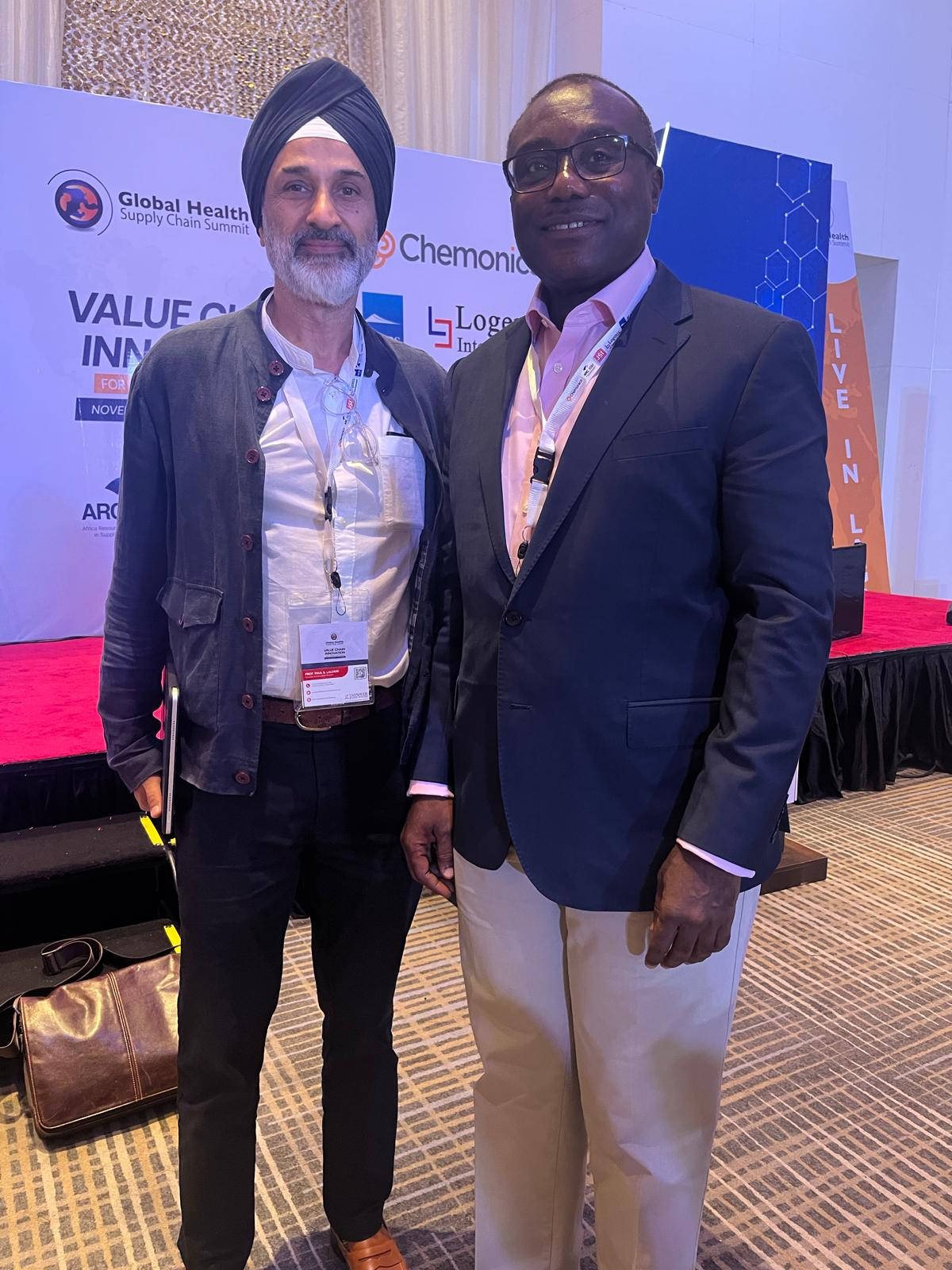Date:November 18, 2024

November 20, 2024 Kigali, Rwanda and San Francisco, USA
Dr. Patrick Lukulay, Chief Regulatory Officer of Bio Usawa, Inc (BUI) recently participated in the 17th Global Health Supply Chain Summit, held from November 12-15 in Lagos, Nigeria, under the theme “Value Chain Innovation for Universal Health Coverage.” This important gathering brought together key players across the healthcare value chain—united by the shared goal of ensuring access to treatments and technologies for patients everywhere. Above, Dr. Lukulay shares his reflections.
As an invited panelist on “Innovations in Manufacturing Technology,” I focused on a critical topic: the potential of manufacturing innovations to make lifesaving medicines, such as monoclonal antibodies, more accessible and affordable.
Monoclonal antibodies (mAbs) represent a revolution in the treatment of cancers, autoimmune diseases, and infectious diseases, particularly in developed economies where they are now the standard of care. However, their high cost—ranging from $60,000 to $100,000 per year—has made them inaccessible in low- and middle-income countries (LMICs).
But there is hope. At Bio Usawa, we are committed to leveraging cutting-edge innovations to overcome these cost barriers. In his remarks, I outlined three major cost drivers and how they can be addressed:
1. High Startup Costs: Traditional manufacturing requires massive investments in stainless-steel bioreactors and complex facilities. We propose modular manufacturing units with single-use bioreactors, which can reduce startup costs to as low as $50 million.
2. Onerous Regulatory Requirements: Current regulations often treat biosimilars as if they were innovator drugs, demanding extensive clinical trials. By adopting progressive regulatory models—such as WHO’s updated 2022 guidance, which emphasizes confirmation of "sufficient likeness"—LMIC regulators can streamline approvals without compromising safety or efficacy.
3. Value-Based Pricing: Unlike the cost-based pricing LMICs need, mAbs are often priced based on their perceived value in wealthy markets. Adopting cost-based pricing, reflecting production inputs plus fair margins, will make these medicines affordable.
In summary, affordable and accessible monoclonal antibodies are achievable by combining innovative manufacturing, science-aligned regulatory reforms, and cost-based pricing.
As I shared during the summit:
- “There can be no universal health coverage without access, no access without affordability, and no affordability without competition. Regulatory barriers that ignore science and data unreasonably limit new entrants, stifling competition and perpetuating inequities.”
The words of Bio Usawa’s CEO resonate deeply:
- “When patients die because there is no cure, it is a tragedy. When patients die because the cure is unaffordable, it is an injustice.”
The summit reaffirmed our collective responsibility to dismantle these barriers and create an equitable path toward universal health coverage. Dr. Lukulay is grateful for the opportunity to contribute and look forward to advancing these solutions with global stakeholders.
The Bio Usawa team continues to share highlights from the World Local Production Forum (WLPF), where our CEO, Dr. Menghis Bairu, represented Bio Usawa o…
April 2025We’re proud to share highlights from the World Local Production Forum (WLPF), where our CEO, Dr. Menghis Bairu, represented Bio Usawa on the global stag…
April 2025SOCAP is the world’s largest annual impact event, providing change makers, entrepreneurs and institutional investors the opportunity to learn from each …
April 2025